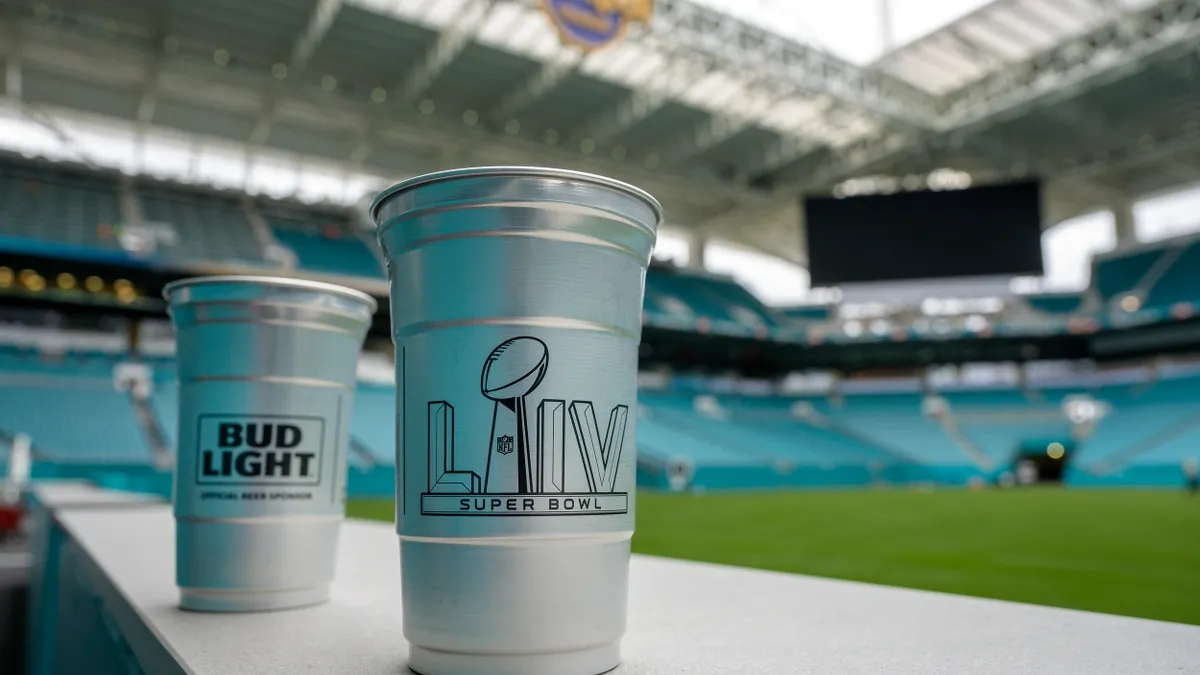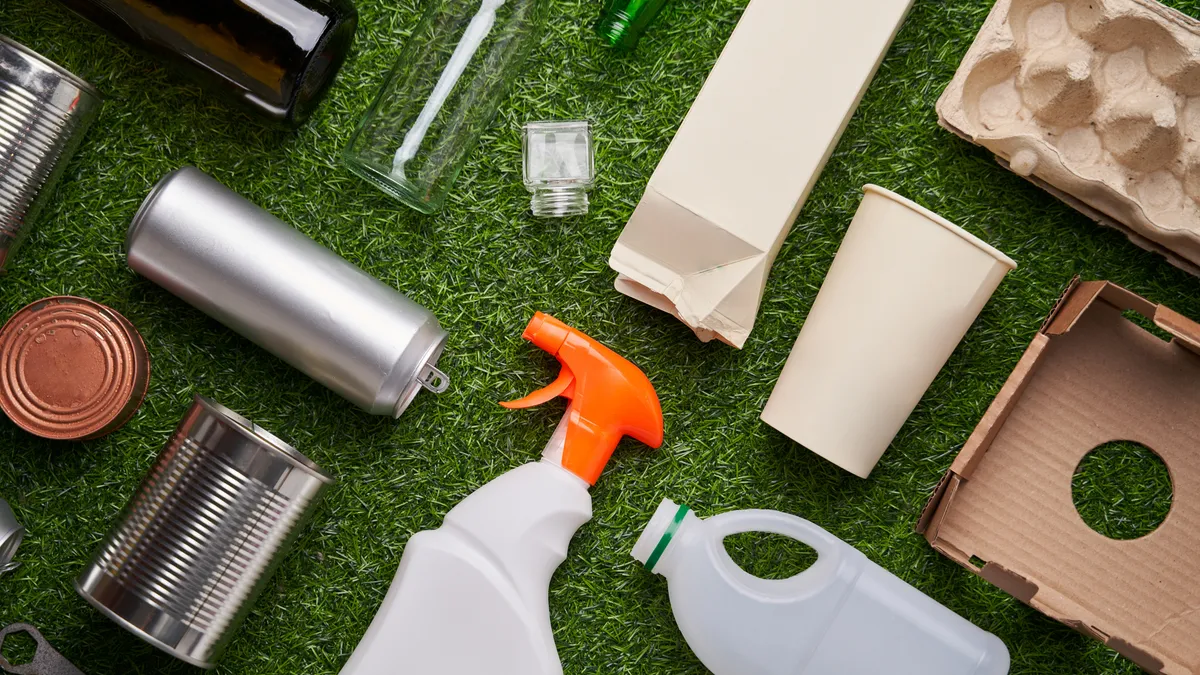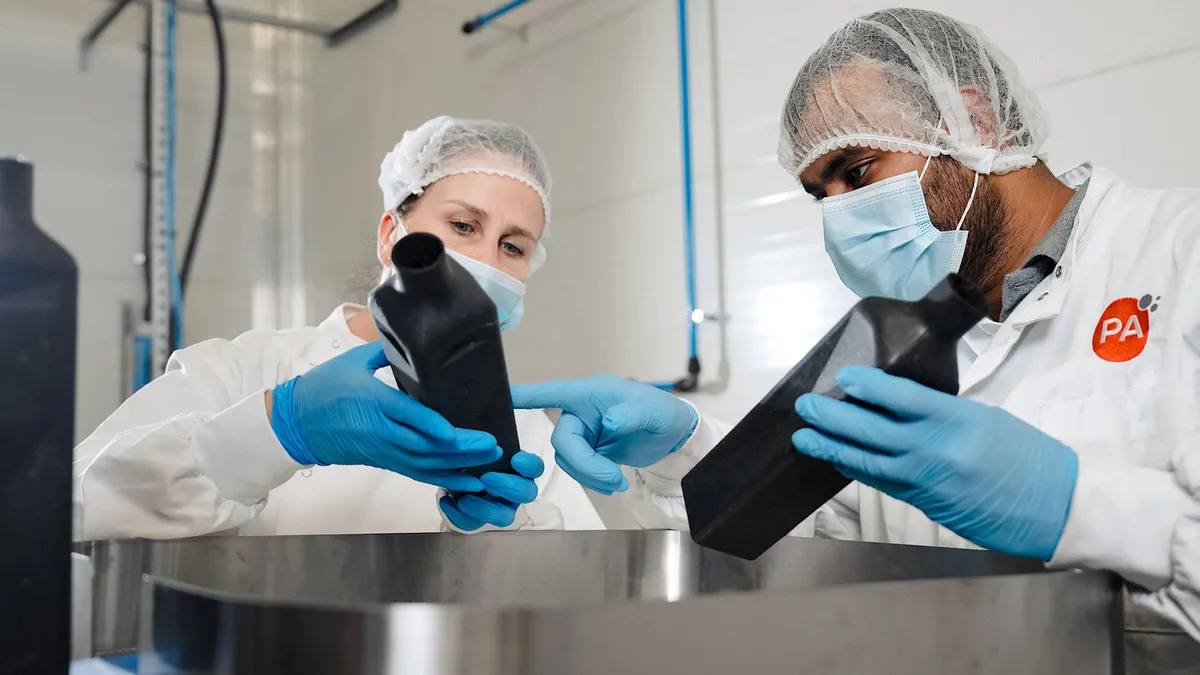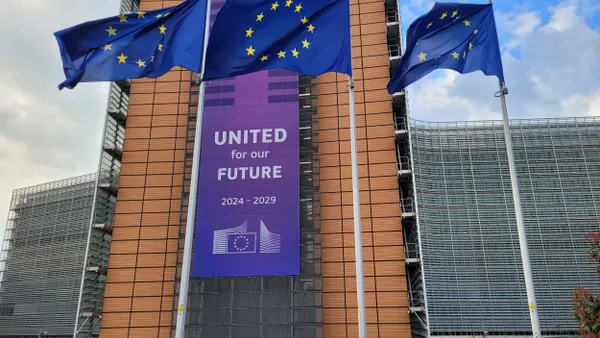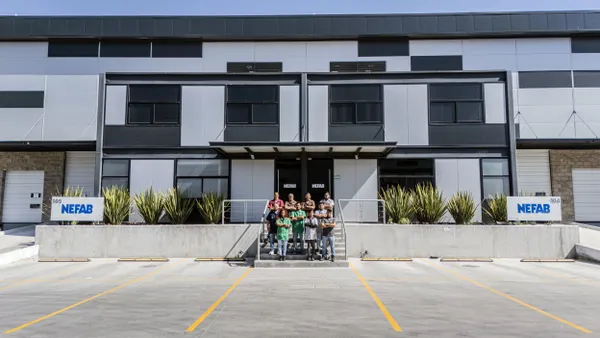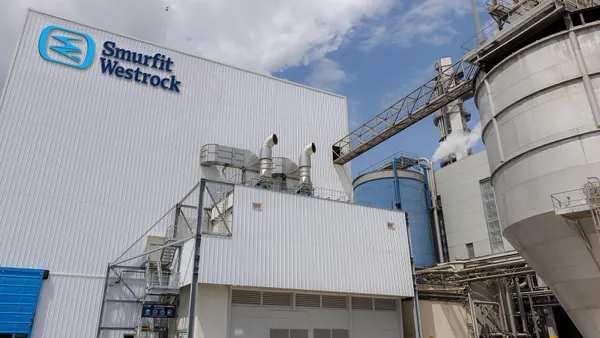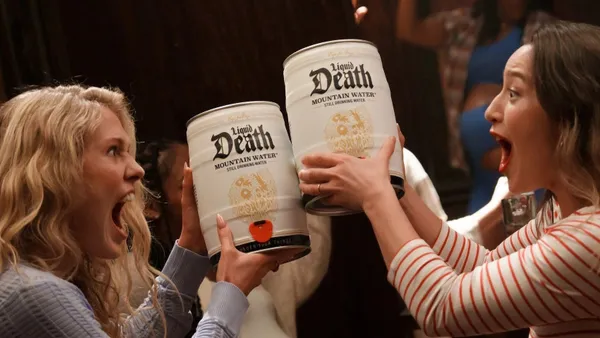After a pandemic disruption, Ball’s aluminum cups business has refocused on growth in large event venues, while also eyeing hospitality, fast-casual food service and international markets.
The original strategy for the cups business revolved around U.S. sports and entertainment venues, but COVID-19 shut down events shortly after the cups’ late-2019 launch, forcing a pivot. Over the last two years, the business has gotten into about 35,000 points of retail distribution.
“We’re still in startup mode,” said Emily Fong Mitchell, who joined the company as president and general manager for Ball Aluminum Cups in 2022 following work at Colgate-Palmolive. For now, the business falls under the non-reportable section of company filings.
With events returning, today the business’ main focus is in sports and entertainment, with a presence in more than 25 major sports league venues as well as college stadiums. Ball, headquartered in Colorado, has taken opportunities to assess the product and grow the business in its own backyard.
Ball gained the naming rights to Denver’s sports arena through a 2020 agreement with Kroenke Sports & Entertainment, a deal that also included plans to feature Ball’s cups at other KSE sites. At Ball Arena specifically, the partners agreed to transition all concessions in cans, bottles and cups to aluminum beverage packaging.
The business isn’t just selling cups, Mitchell said: “we’re also really working with the venues on collection," as far as bin placement, signage and recycling activities for fans. Aluminum is collected, bailed and then monetized — a revenue-generating source for Kroenke, Mitchell said. As with its beverage cans and bottles, Ball is pursuing a 90% recycling rate and 85% recycled content in its cups. The cups already contain 90% recycled aluminum, Mitchell said, and “it's really important [that we can] get that recycled aluminum back in the system, allow it to come back as a cup or a can in as little as 60 days.”
Elsewhere in Colorado, the company recently installed a short-run reverse vending machine with RTS for aluminum takeback at Red Rocks Amphitheatre. And the business is also making its first forays into leisure and lodging, including at some ski resorts.
Although the cups are primarily a disposable product meant to replace plastic or paper, Mitchell said, they can be refilled and reused. As printing capabilities have advanced, some go home with fans as a souvenir. Fan feedback suggests they enjoy the “premium experience”: concertgoers paying $15 for a beer don’t want it in a flimsy disposable plastic cup, she said. That’s been “a secondary insight that we didn't really anticipate as much.” Mitchell said Ball is using those potential branding benefits as a key selling point to leisure and lodging customers.
Meanwhile, in food service, in 2023 Ball has been “doing some tests with a limited number of different fast casual players to see what the opportunity can be with them,” Mitchell said. Geographic expansions this year included in Canada, with National Hockey League teams, and in Mexico, including at Formula 1 events. The business has also expanded into the U.K.; soccer fans will soon be able to use the cups at the stadium of Kroenke-owned Arsenal, Mitchell said.
The 2019 launch was with prototype cups that Ball produced out of its R&D facility and the company started making them at scale in Rome, Georgia, in 2021. In Ball’s 2022 combined report, the company said the plant started its second manufacturing line. The cups are now available in five sizes, 9 through 24 ounces. Mitchell could not publicize production targets but said the business has “invested for the future so we do have a good amount of capacity across all five sizes.”
“We'll continue to expand geographically as it makes sense; we don't want to spread our resources too thin at the moment,” Mitchell said. In 2024, “as a startup, our goal is to continue to grow, to sell more cups every day than we did the day before ... It's still just scratching the surface of what we believe we can do in terms of converting the disposable cups market to something that's more sustainable.”



